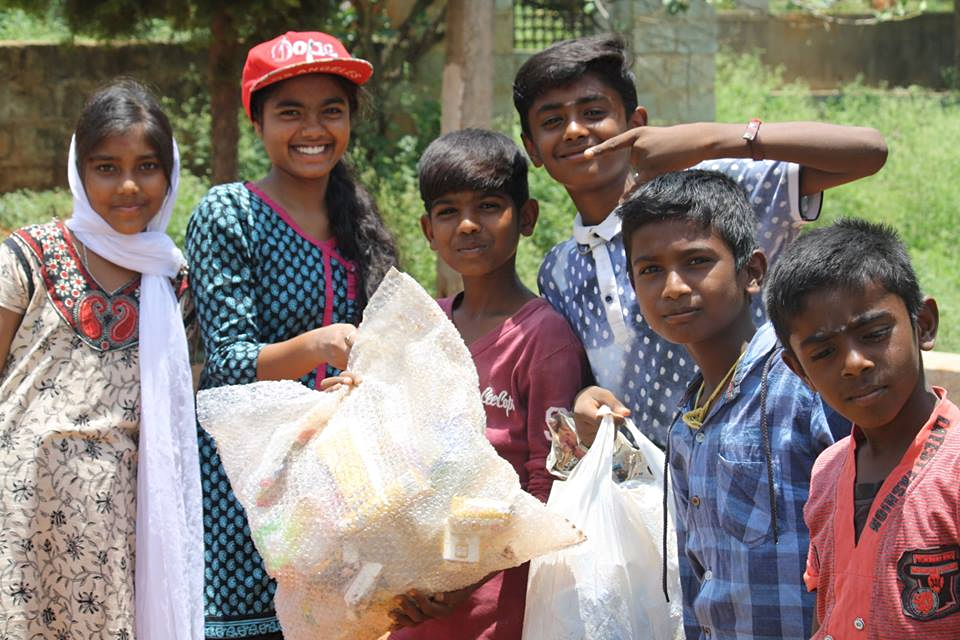

This year’s theme, ‘Ecosystem Restoration,’ for World Environment Day, underscores the urgency facing this generation and the ones that come after. Restoring and reviving our waning environment and green spaces requires sustainable and conscious dedication. Above all, the scale of the environmental and water challenges facing us, whether on a local, national or global scale, demands a collaborative and multi-stakeholder approach.
Catalysing true ecosystem restoration is beyond the scope of a single organisation. Embassy Group has long believed in the collective power of giving back, and it has reshaped the ways we undertake our Corporate Social Responsibility initiatives. During this past year, which was a challenging one, we witnessed the might of partnerships and how they have enabled us to reach beyond what we can achieve ourselves. It has reaffirmed our belief that together we can achieve more.
The Bettahalasuru Panchayat, however, suffered from air, water and soil pollution, with garbage from approximately 2,500 waste generators (around 53-tonne kgs per month) being dumped and burned. There was a low level of involvement and understanding of sustainable living methods from the communities, an increasing loss of biodiversity and over-usage of natural resources.
We have been actively working in the Bettahalasuru Panchayat, which comprises ten villages in North Bangalore, since 2012. We began by providing a new government school building in the Tarahunise village, which continues to be adopted and maintained by us. Five additional government schools in the Panchayat also benefit from our holistic health and hygiene initiatives, including the provision of health kits, awareness programmes, comprehensive health screenings and treatments. The Group has also supported Tarahunise village in developing the infrastructure, including building the main arterial road, restoring the ancient temple, and constructing a community hall.
The Bettahalasuru Panchayat, however, suffered from air, water and soil pollution, with garbage from approximately 2,500 waste generators (around 53-tonne kgs per month) being dumped and burned. There was a low level of involvement and understanding of sustainable living methods from the communities, an increasing loss of biodiversity and over-usage of natural resources. Due to the rapid expansion of the Bengaluru metropolitan area, Bettahalsuru Panchayat runs the risk of becoming an urban dumping ground like many other areas in the city.
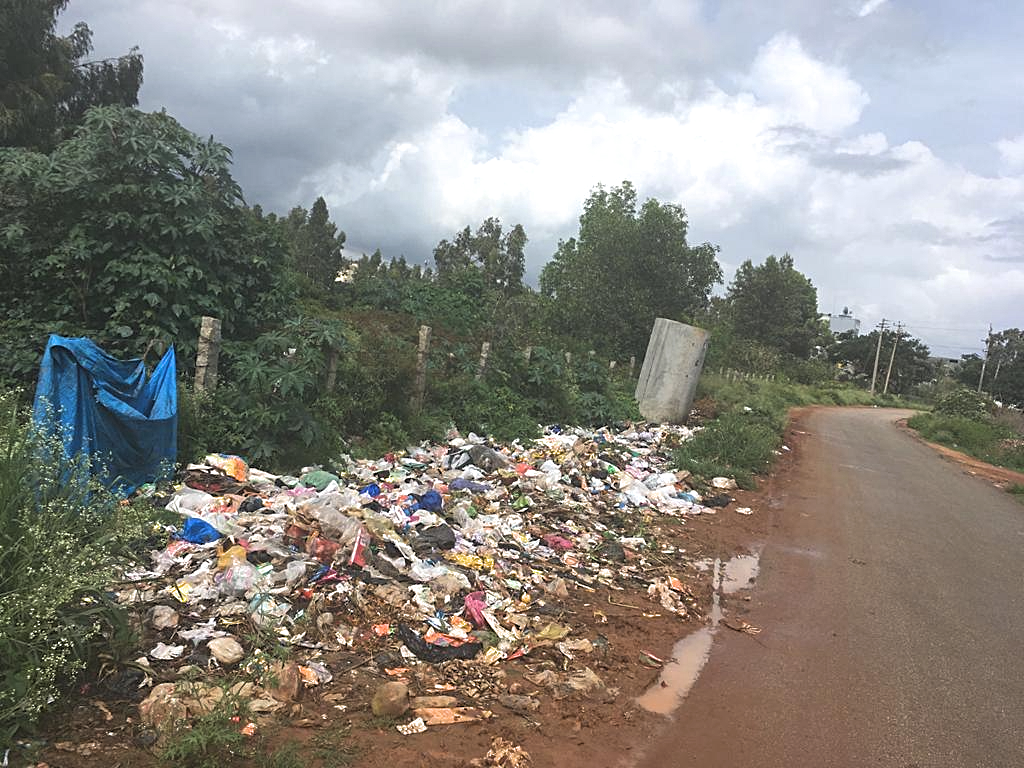
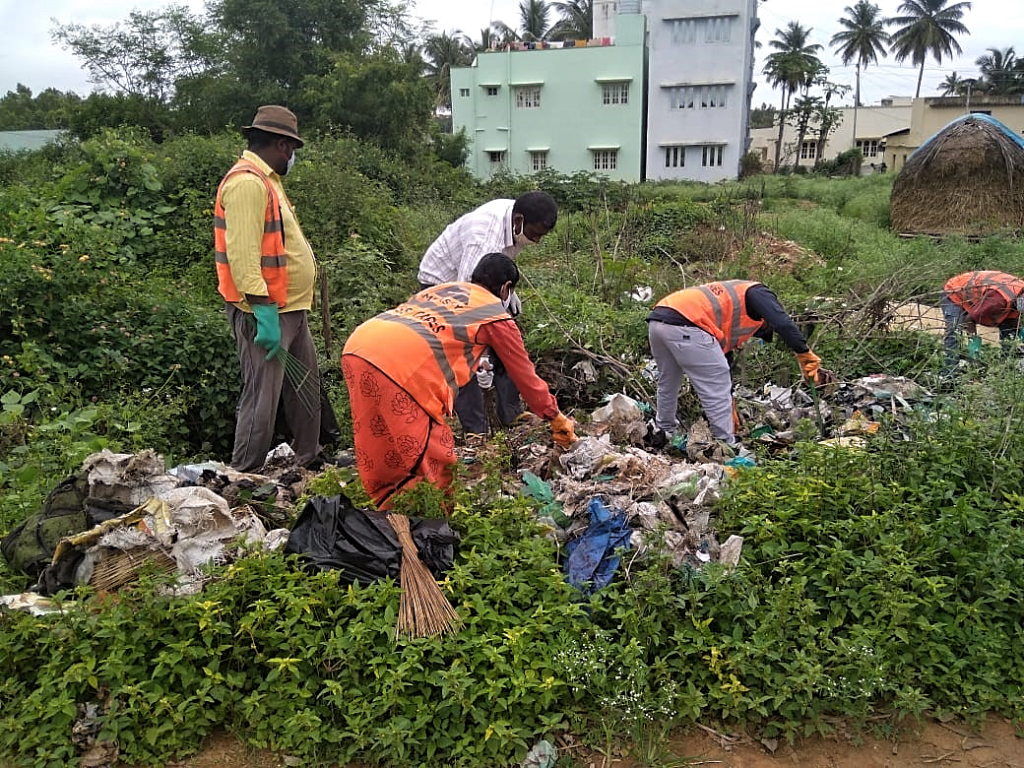
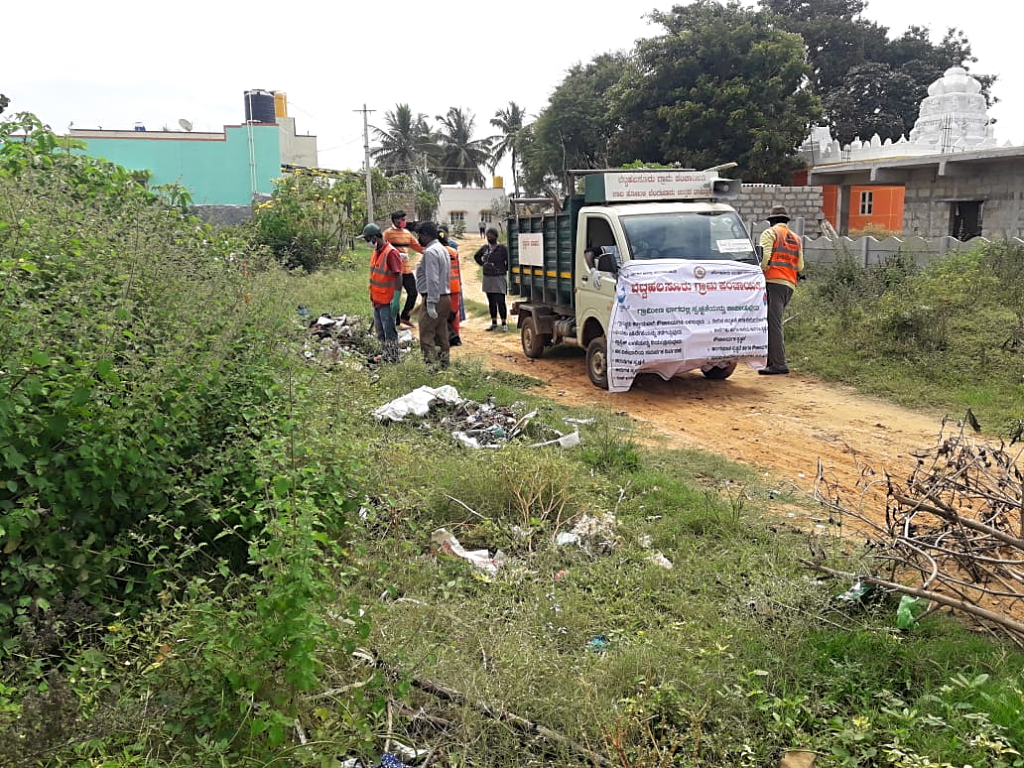
The project focused on bringing together members of the community, local governance and investors towards addressing the issues of irresponsible disposal of garbage and depletion of soil and water.
“Today, Tarahunise village looks very clean with little to no garbage on the streets. Earlier, however, the situation was different. There used to be garbage everywhere – due to this, there was no systemic way to dispose of waste,” said Rajeswari, a resident of Tarahunise Village.
Myriam Shankar, the Managing Trustee of The Anonymous Indian Charitable Trust (TAICT), approached us with a solution – addressing the lack of accountability and ownership over our diminishing natural resources and distressingly high levels of pollution. Initiated in 2016, EcoGram is our sustainable CSR project in partnership with TAICT. Together, we jointly aim to create an ecologically sound replicable model Gram Panchayat to propagate sustainable waste, water and soil management.
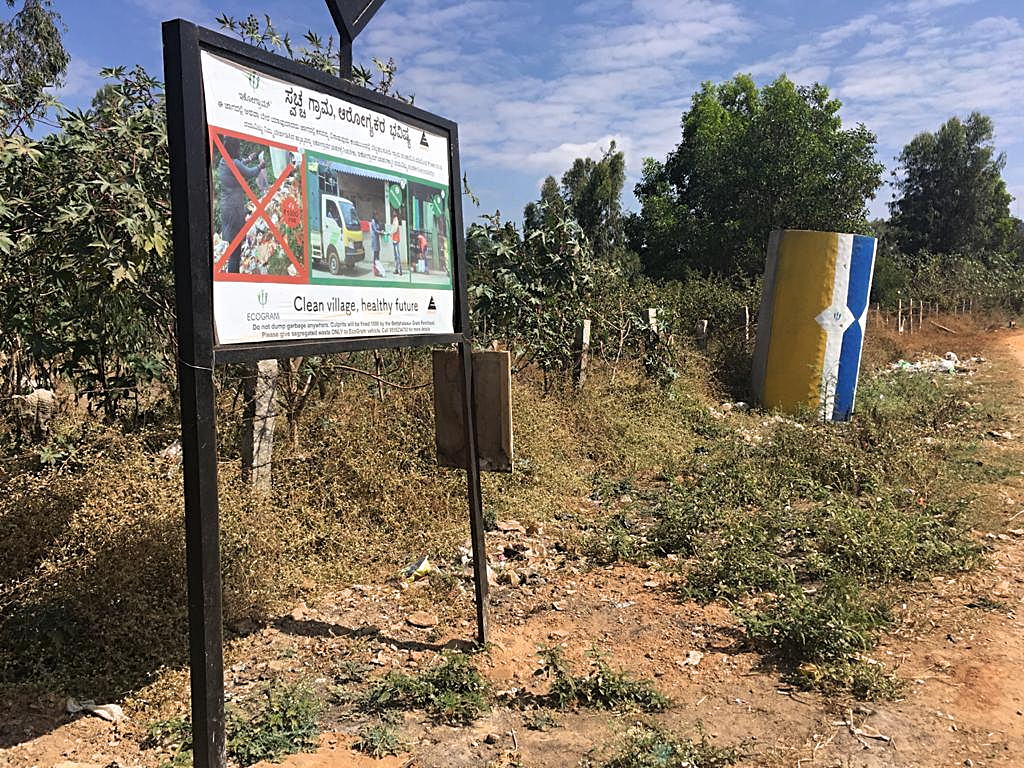
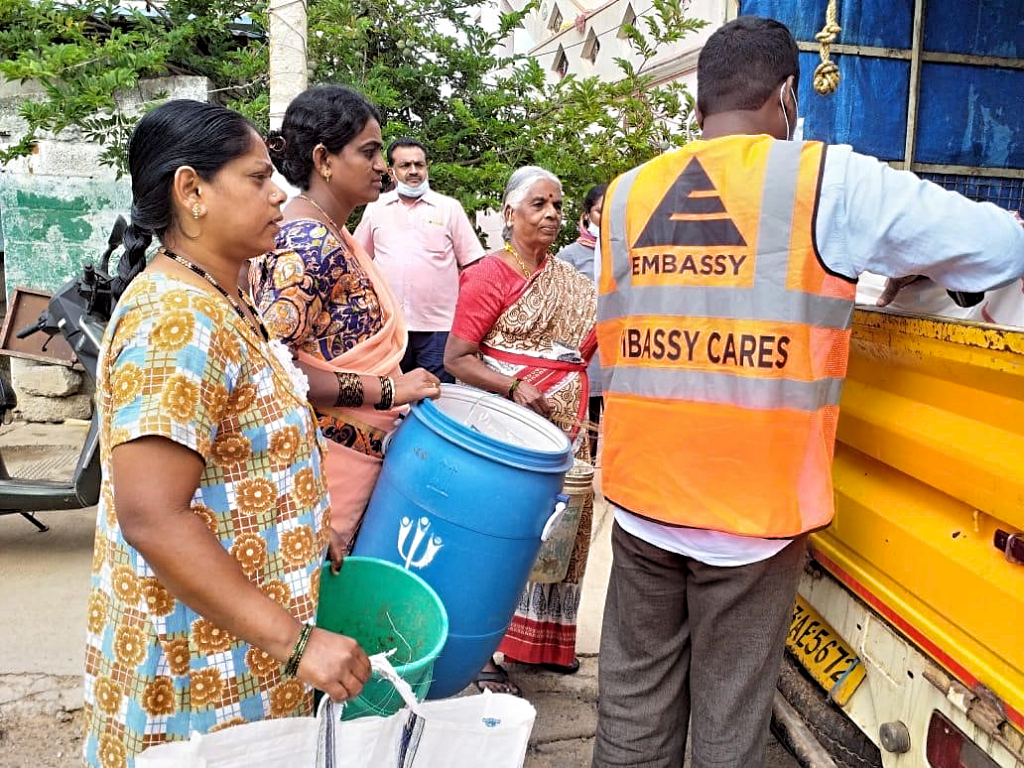
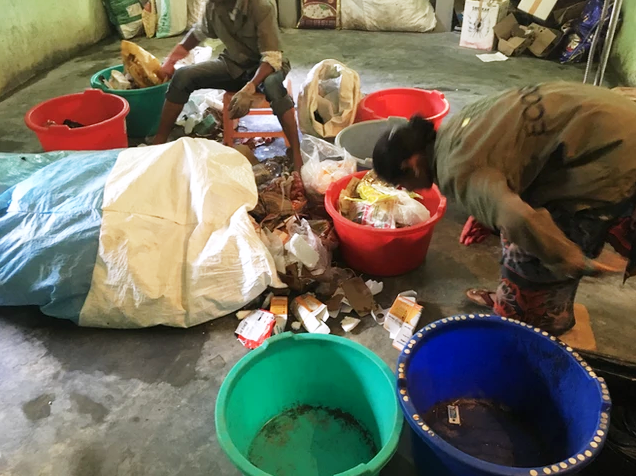
What began as a pilot project in Tarahunise now encompasses eight villages in the Bettahalasuru Panchayat, benefitting 1811 households and ten bulk generators. Myriam Shankar said, “To implement waste management in a locality, which never saw a dustbin, let alone three-way segregation at source, is an incredible uphill task. It entails creating intensive awareness amongst all stakeholders, be it the local government representatives, villagers or commercial establishments. It requires setting up solid operations of men, machinery and infrastructure. We have been able to deliver the EcoGram project, which encompasses end-to-end waste, including collection, transportation, secondary segregation and further processing. The positive environmental impact is huge, in addition to creating employment for marginalised communities.”
The project focused on bringing together members of the community, local governance and investors towards addressing the issues of irresponsible disposal of garbage and depletion of soil and water. TAICT had to first get a buy-in from the Panchayat leaders, in a series of meetings held in 2016. As a part of their first phase, they brought in multiple partners to set up a solid waste management system in Tarahunise. They then conducted a baseline survey to understand the demographic make-up and land-use patterns of the village.
These projects work towards producing a self-sufficient Panchayat with residents of all ages regularly participating in clean-up drives and awareness marches. Embassy and TAICT’s partnership with the Panchayat demonstrates the importance of engaging residents and mid and high-level decision-makers in bringing about the desired behavioural change to improve the environment.
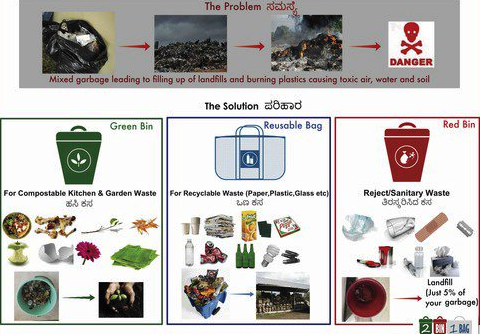 The decentralised solid waste management allowed waste generators to sort waste into three categories at source using the 2bin1bag methodology. The collected organic waste is then converted into compost, and the recyclable waste is sorted at a Dry Waste Collection Center, all within the Gram Panchayat. There has been 93.2 per cent segregation at source achieved for village households, with 94.3 per cent achieved for bulk generators across eight villages in FY2020-21.
The decentralised solid waste management allowed waste generators to sort waste into three categories at source using the 2bin1bag methodology. The collected organic waste is then converted into compost, and the recyclable waste is sorted at a Dry Waste Collection Center, all within the Gram Panchayat. There has been 93.2 per cent segregation at source achieved for village households, with 94.3 per cent achieved for bulk generators across eight villages in FY2020-21.
To complement the solid waste management infrastructural solutions provided in the Panchayat, a strong emphasis is also placed on community engagement and awareness initiatives curated through women and children in the communities.
Under the EcoGram Shakthi programme, women of the Gram Panchayat are empowered to take ownership of their villages in terms of environmental sustainability. The initiative serves as a livelihood programme through the sale of local food and craft products as well.
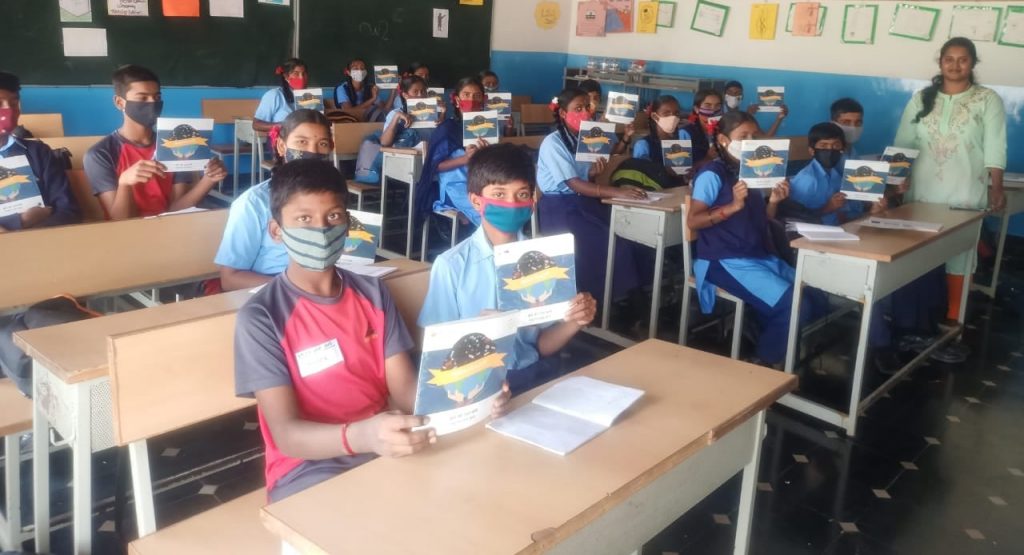
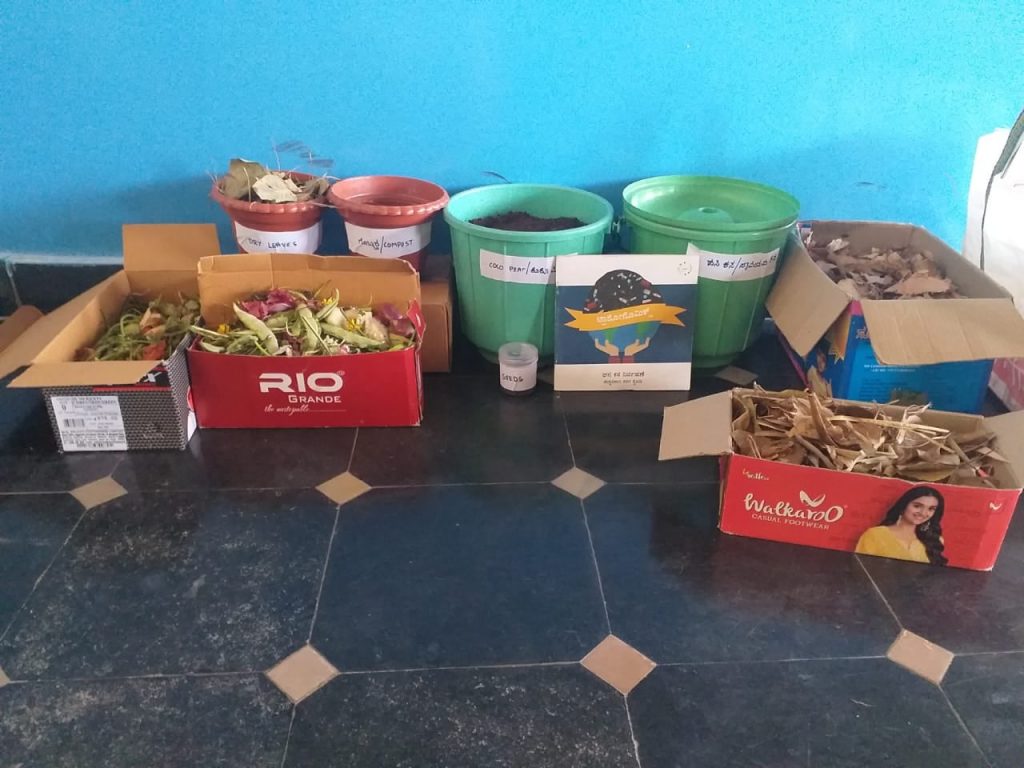 Increasing engagement and civic awareness, TAICT developed a set of educational materials called ‘Trashonomics’ targeted towards educating children on solid waste, its environmental, health and financial impacts, and liquid waste management, which concerns water consumption and management. Annually (other than 2020-21), children participate in EcoGames, an annual summer camp that encourages them to find creative ways to raise awareness amongst their communities.
Increasing engagement and civic awareness, TAICT developed a set of educational materials called ‘Trashonomics’ targeted towards educating children on solid waste, its environmental, health and financial impacts, and liquid waste management, which concerns water consumption and management. Annually (other than 2020-21), children participate in EcoGames, an annual summer camp that encourages them to find creative ways to raise awareness amongst their communities.
These projects work towards producing a self-sufficient Panchayat with residents of all ages regularly participating in clean-up drives and awareness marches. Embassy and TAICT’s partnership with the Panchayat demonstrates the importance of engaging residents and mid and high-level decision-makers in bringing about the desired behavioural change to improve the environment. The success of the pilot project encouraged participation from the communities in defining the issues, contributing to data collection, and providing their time and resources towards EcoGram’s activities.
EcoGram has seen 301 metric tons of dry waste collected and segregated with 323 metric tons of wet waste collected and segregated, 254 metric tons of dry waste recycled thus far. The partners have managed to save 3,127 cubic metres of landfill area.
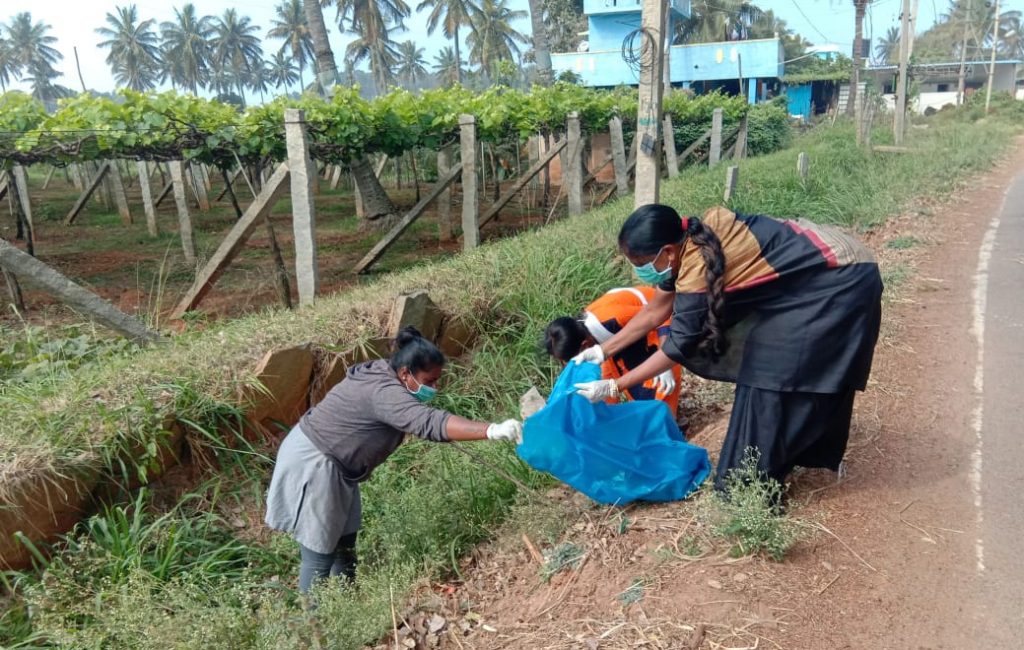
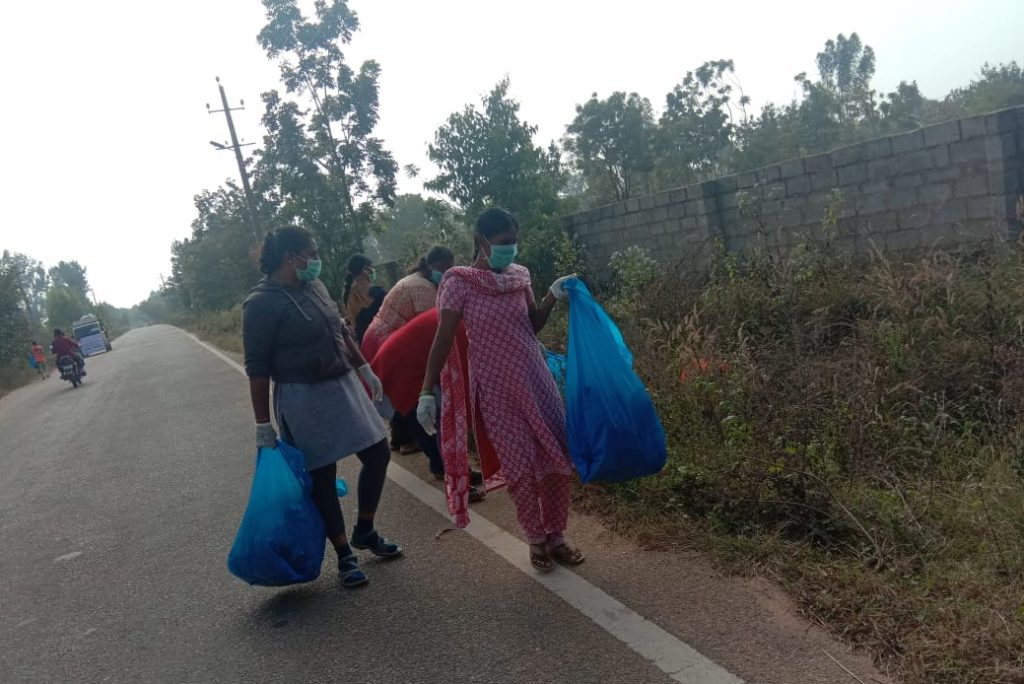
“Our village never used to be clean with all kinds of garbage strewn around. Now, Embassy and TAICT have brought about much improvement and spread awareness about cleanliness and the environment. Earlier, our Aganwadi used to be very dirty – few children would come. It used to be a very unhealthy environment. However, in the last two to three years, more children have been coming. We have made even them aware of the importance of cleanliness. Even small children are aware that they should not litter and the importance of getting rid of their waste properly,” said Prabhavati, an Aganwadi worker in Tarahunise.
EcoGram has seen 301 metric tons of dry waste collected and segregated with 323 metric tons of wet waste collected and segregated, 254 metric tons of dry waste recycled thus far. The partners have managed to save 3,127 cubic metres of landfill area.


In 2020, recognising the in-depth work carried out by us and TAICT over the years, the Panchayat signed a Memorandum of Understanding (MoU) with us, allocating two acres of land dedicated to collection and segregation of dry and wet waste. Further, the Panchayat requested our sister concern – Embassy Office Parks REIT – to build the Dry and Wet Waste Collection Centre, with a greater capacity for gathering and sorting waste. This will enable the extension of waste collection from the present eight villages to eighteen villages, over the Bettahalasuru and neighbouring Meenakunte Panchayat.
Krishna Byre Gowda, MLA, Byatarayanapura, said, “The commitment demonstrated by Embassy Group towards creating a replicable waste model in North Bangalore has been truly commendable. Developing solutions to the enormous burden of waste and lack of infrastructure in villages is of utmost importance – the new Dry and Wet Waste Collection Centre built by Embassy REIT will go a long way in promoting a more sustainable way of managing waste and will benefit 18 villages in both the Bettahalasuru and Meenakunte Panchayats. We hope that this example can be repeated across Urban and Rural Bangalore, creating a brighter, cleaner, and more engaged city.”
As we move towards achieving ecosystem restoration, it is important to recognise the role that citizens and local-led environmental movements can play. Involving local and key stakeholders greatly increase the effectiveness of engendering systemic change and increasing accountability. The key to effective change is to understand that environmental issues are best handled when all concerned citizens at every level participate.
Head of the Bettahalasuru Panchayat, Rajani Prakash added, “This project will make our Panchayat a model of collaboration and sustainability. We look forward to our continued partnership in striving to uplift our villages holistically.”
The Centre will be built at a cost of Rs 1 Crore with the Bettahalasuru Panchayat contributing Rs 9 Lakhs. We have appointed TAICT to oversee the development and operations of the Dry and Wet Waste Centre.
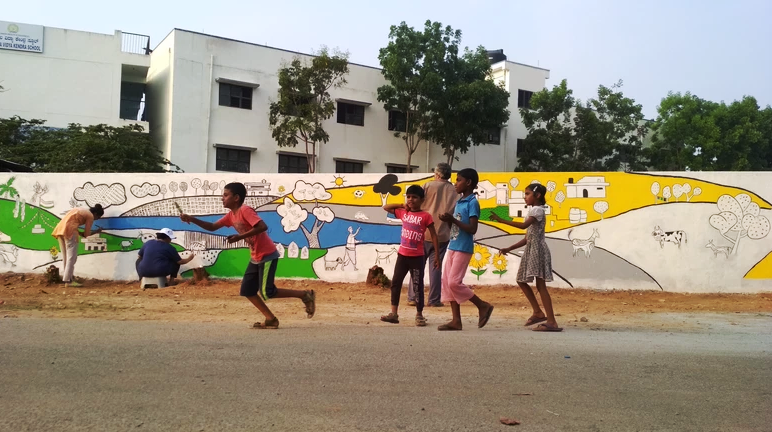
As we move towards achieving ecosystem restoration, it is important to recognise the role that citizens and local-led environmental movements can play. Involving local and key stakeholders greatly increase the effectiveness of engendering systemic change and increasing accountability. The key to effective change is to understand that environmental issues are best handled when all concerned citizens at every level participate. Harnessing the strength of our communities and partnerships towards change ensures that we are laying a firm ground for continued and future change.
There are many ways to empower communities and create a sense of belonging towards their community and environment – an effective path forward is providing locals with access to information that enables them to make informed and sustainable choices. Only then can our dream for a healthy ecosystem, coupled with economic development, come true.
Shaina Ganapathy is the Head of Community Outreach, Embassy Group.

